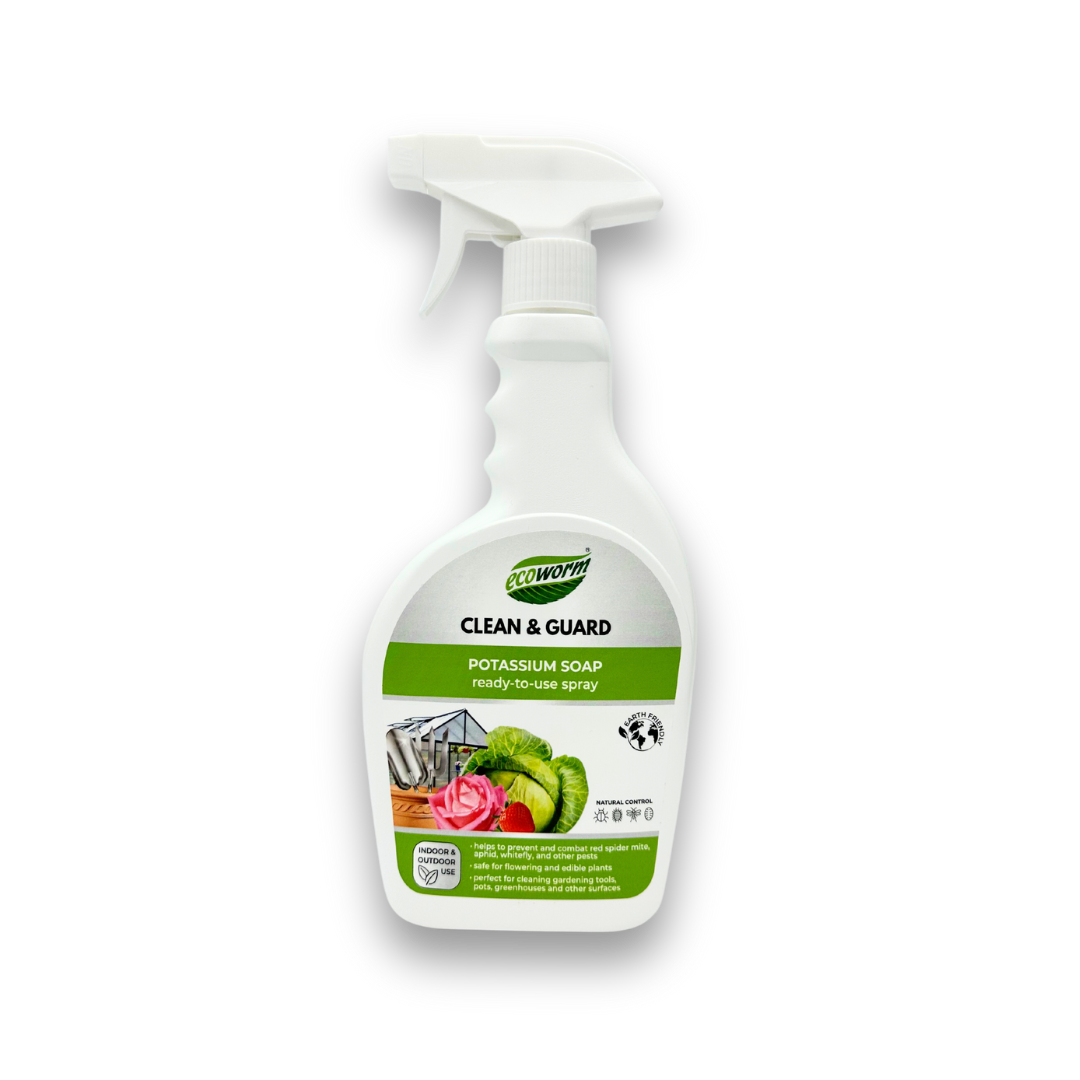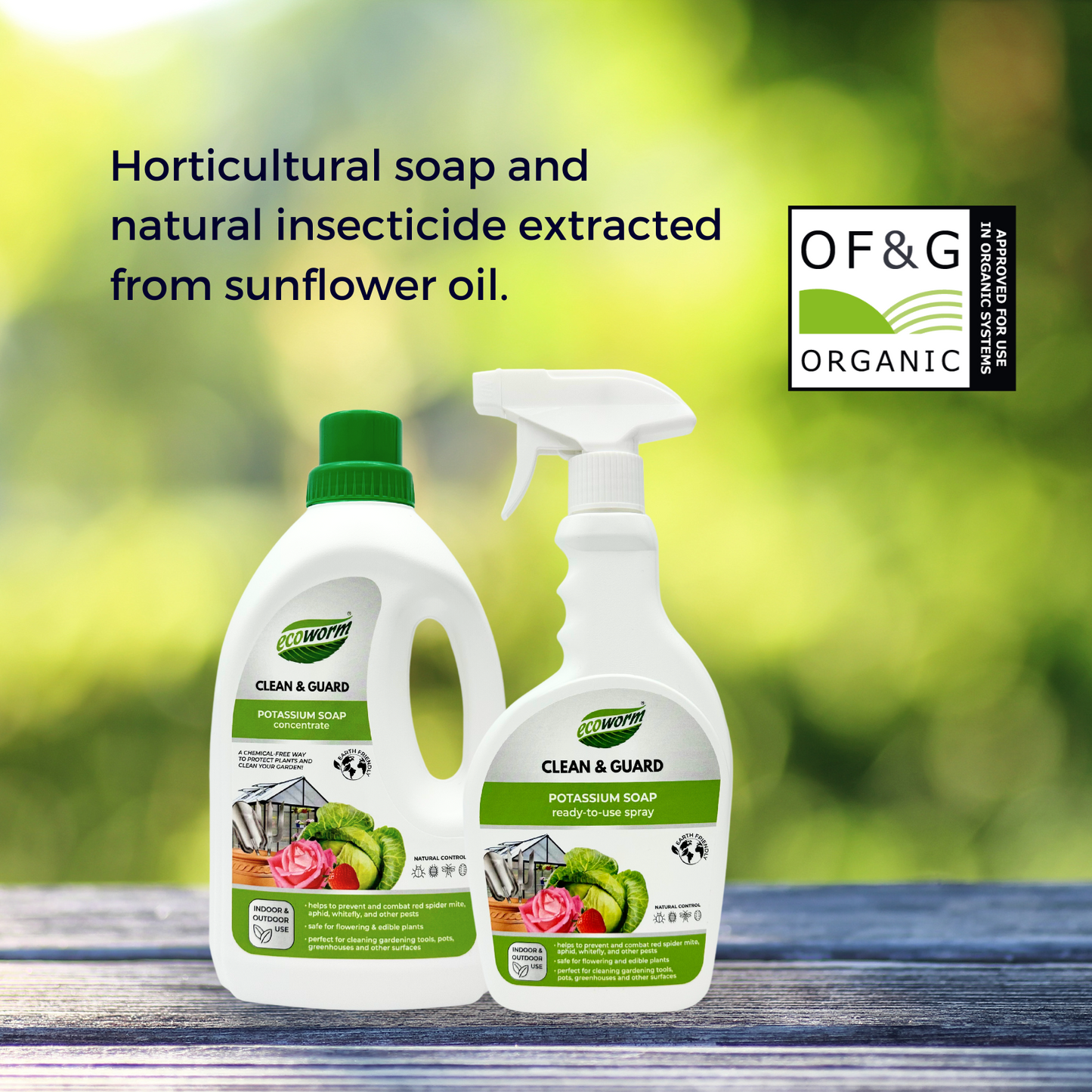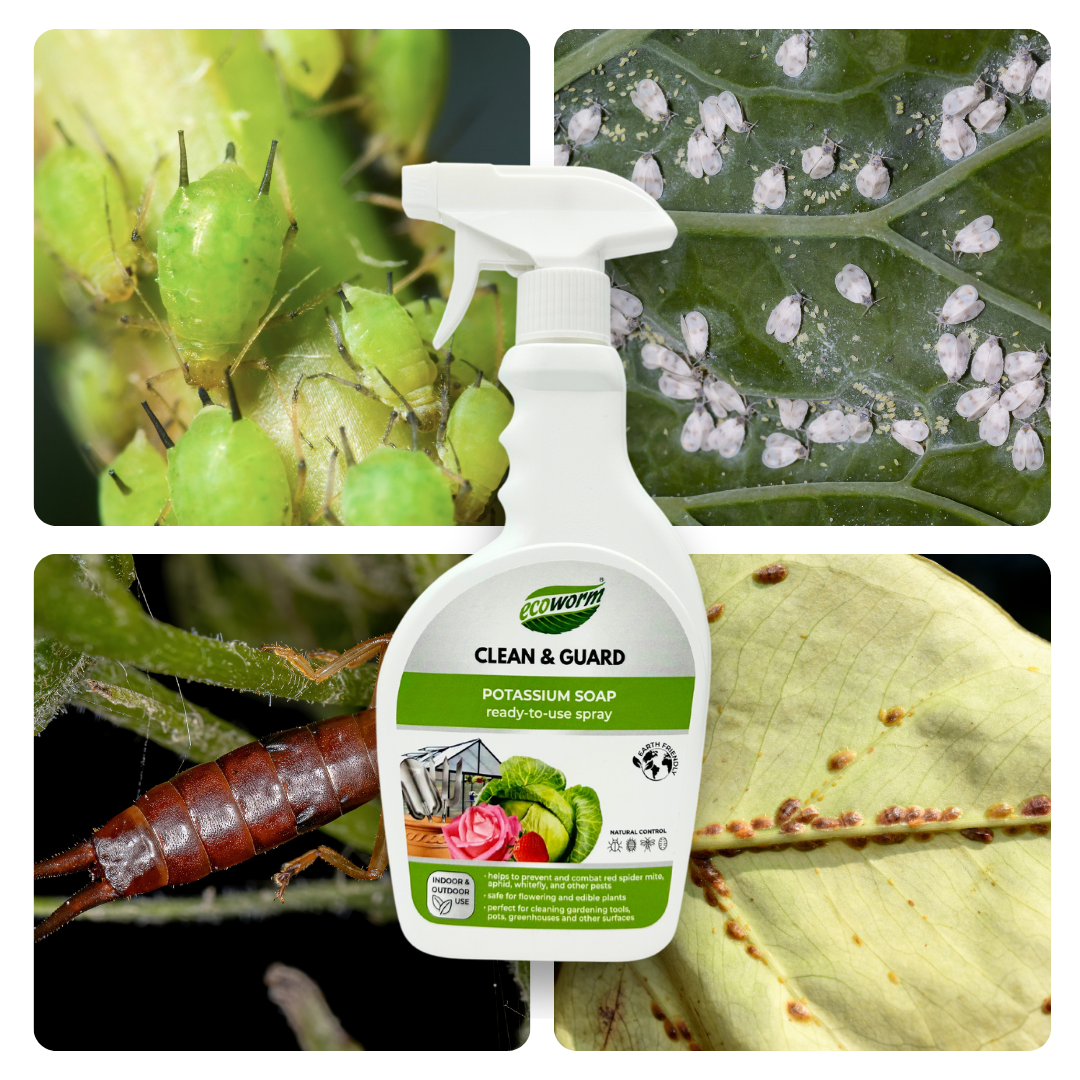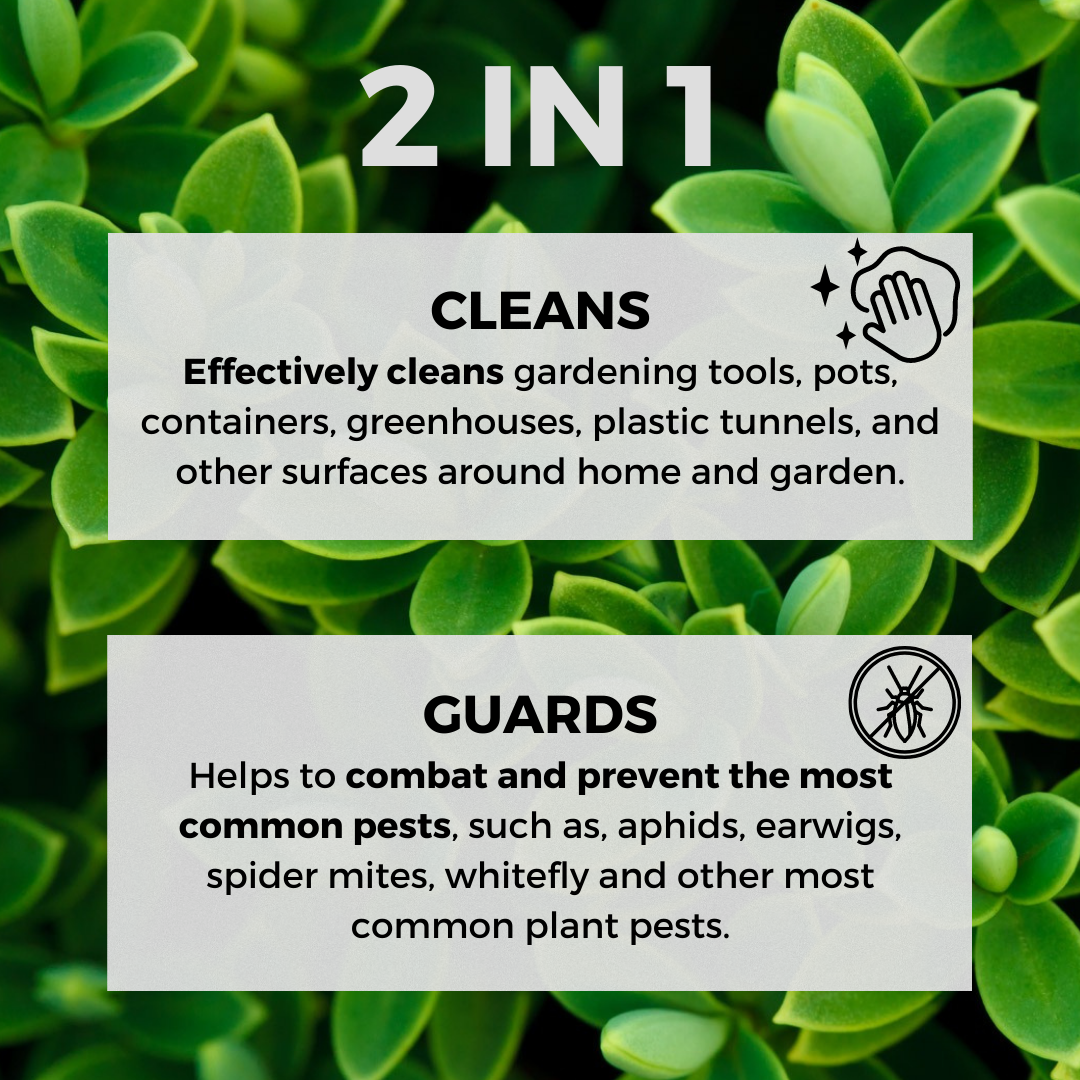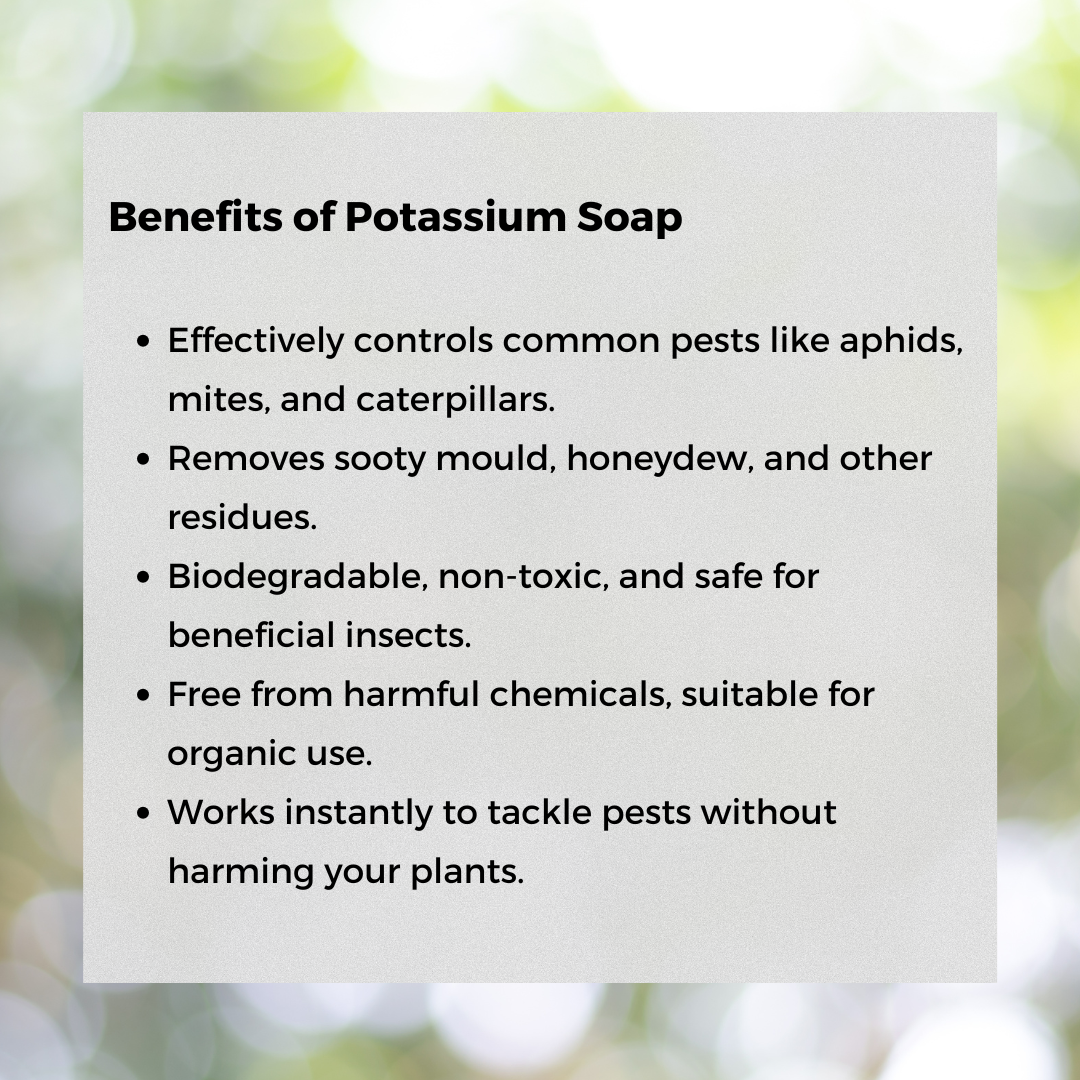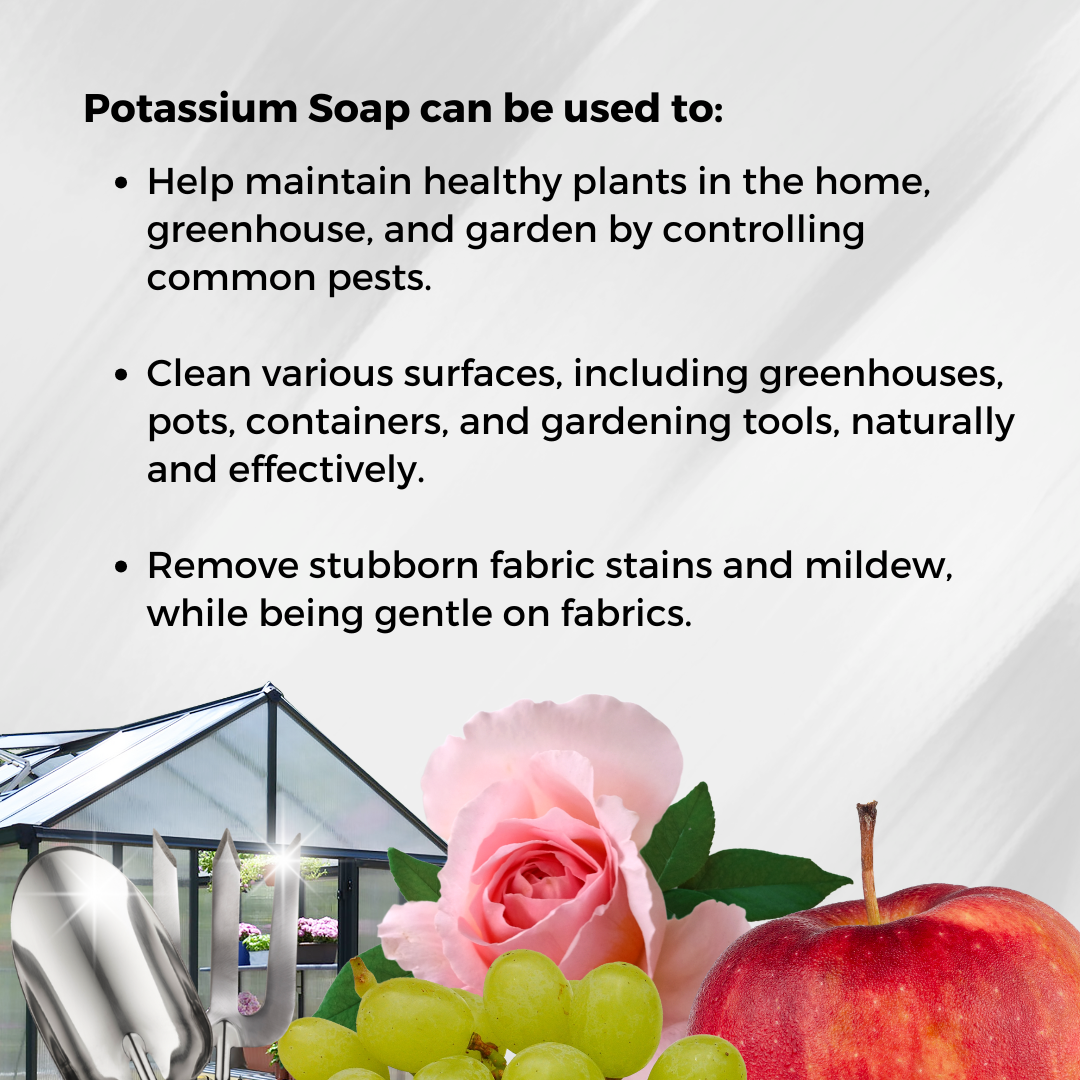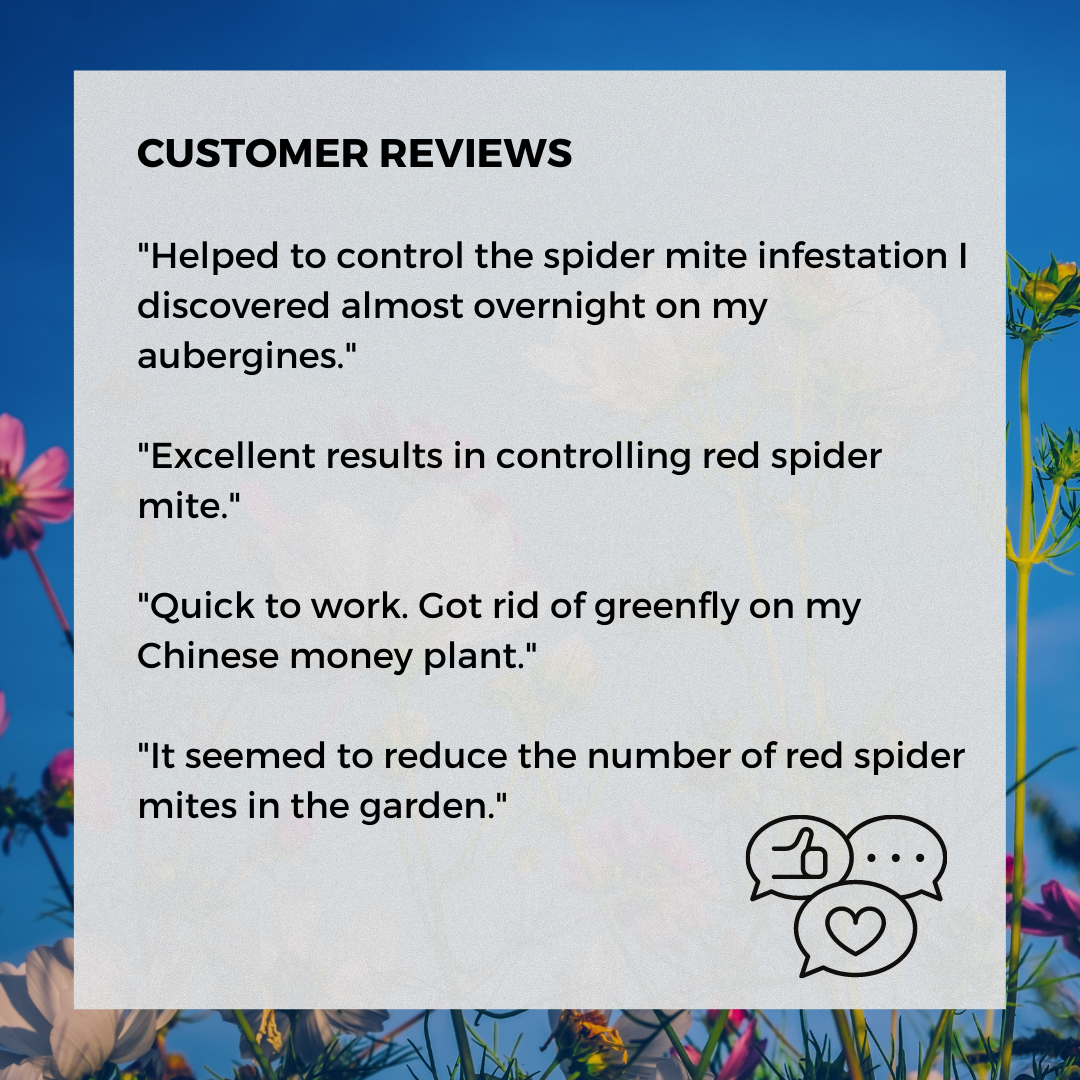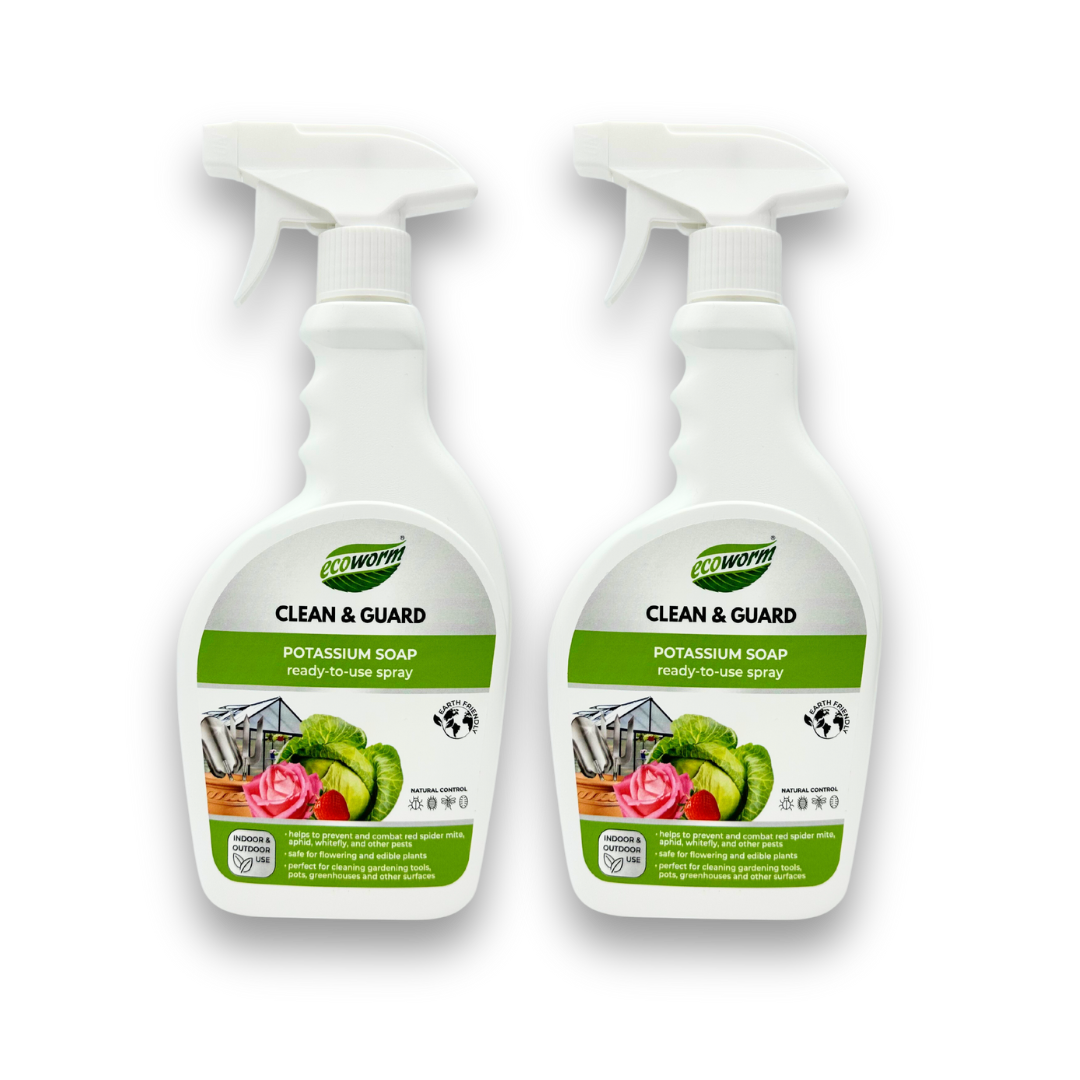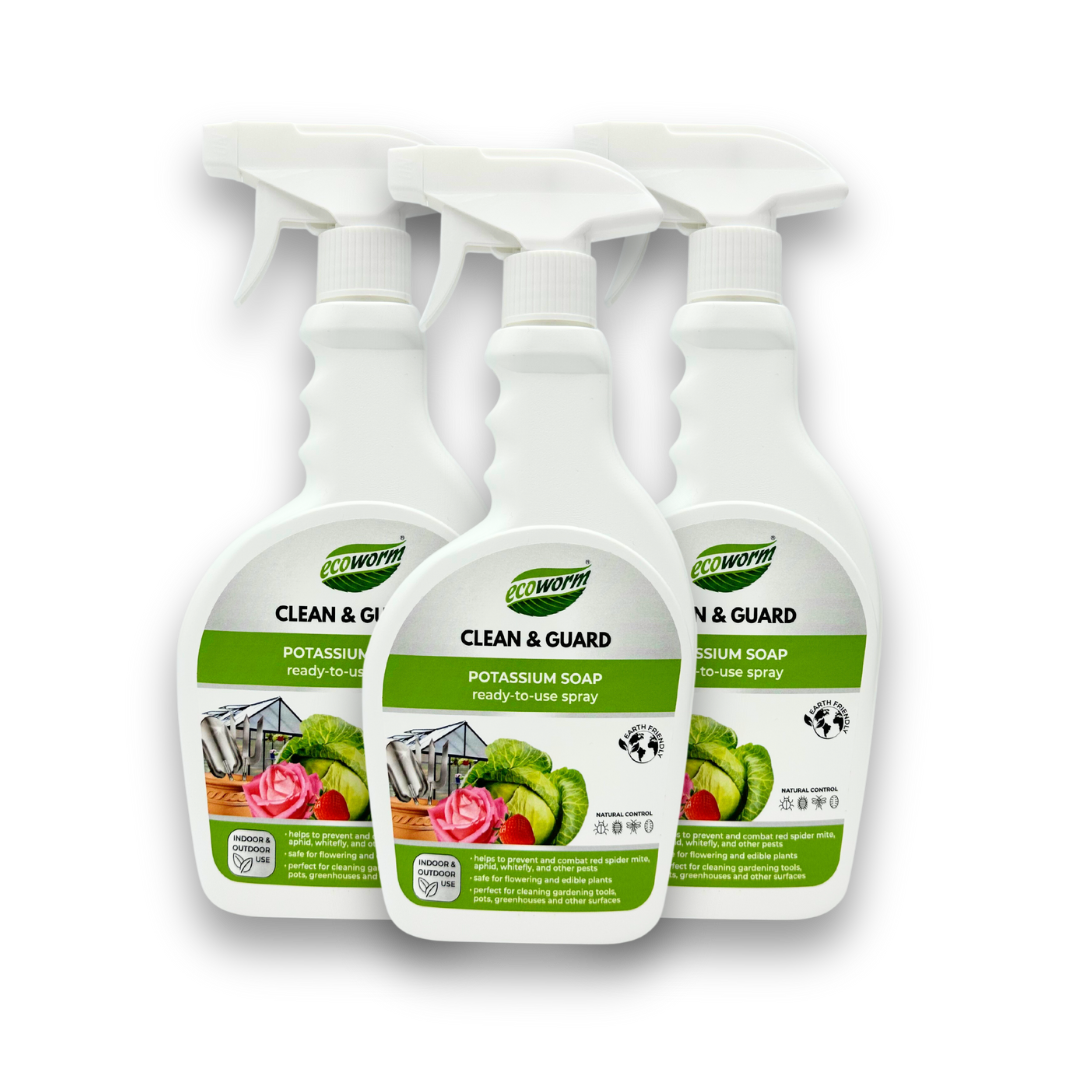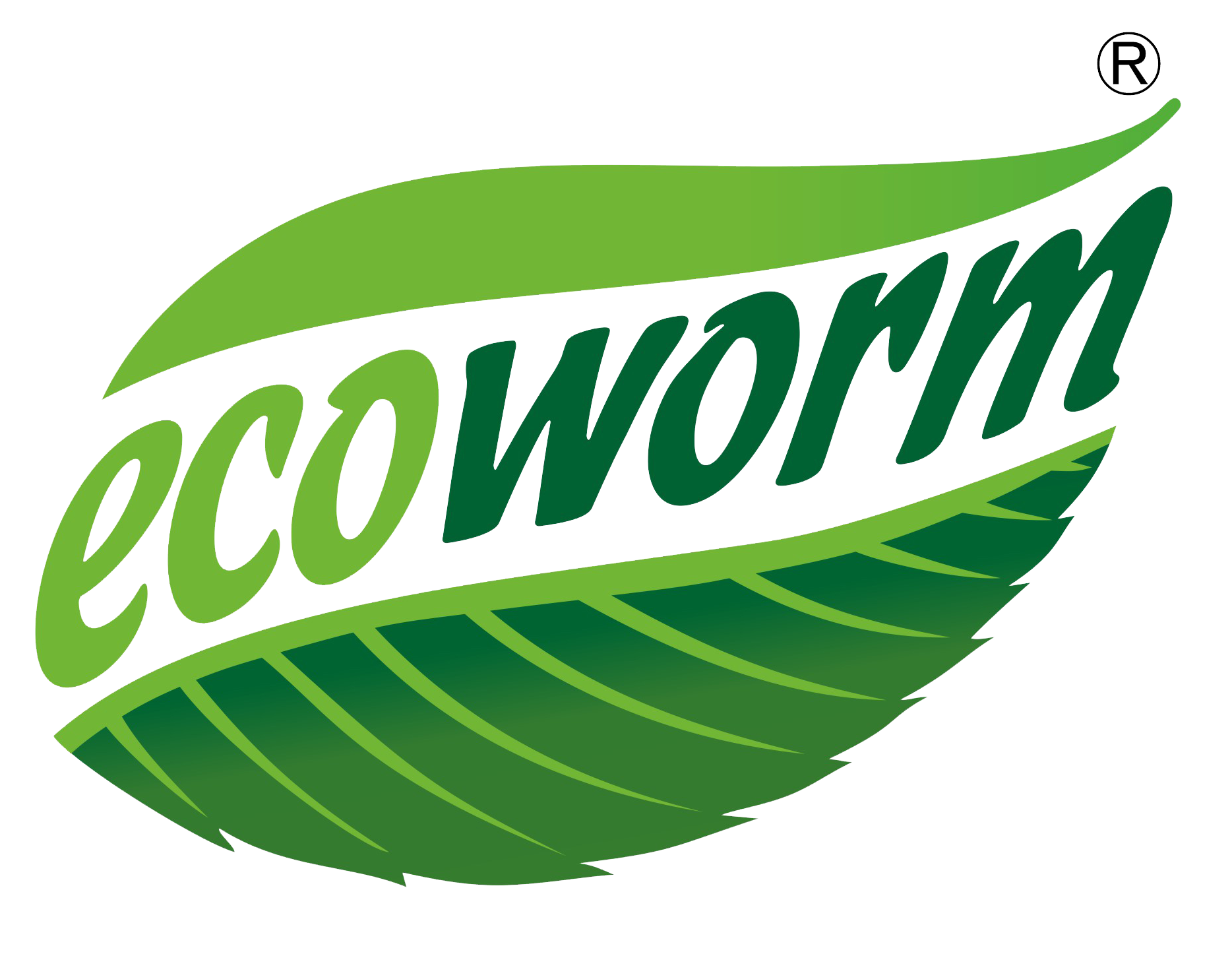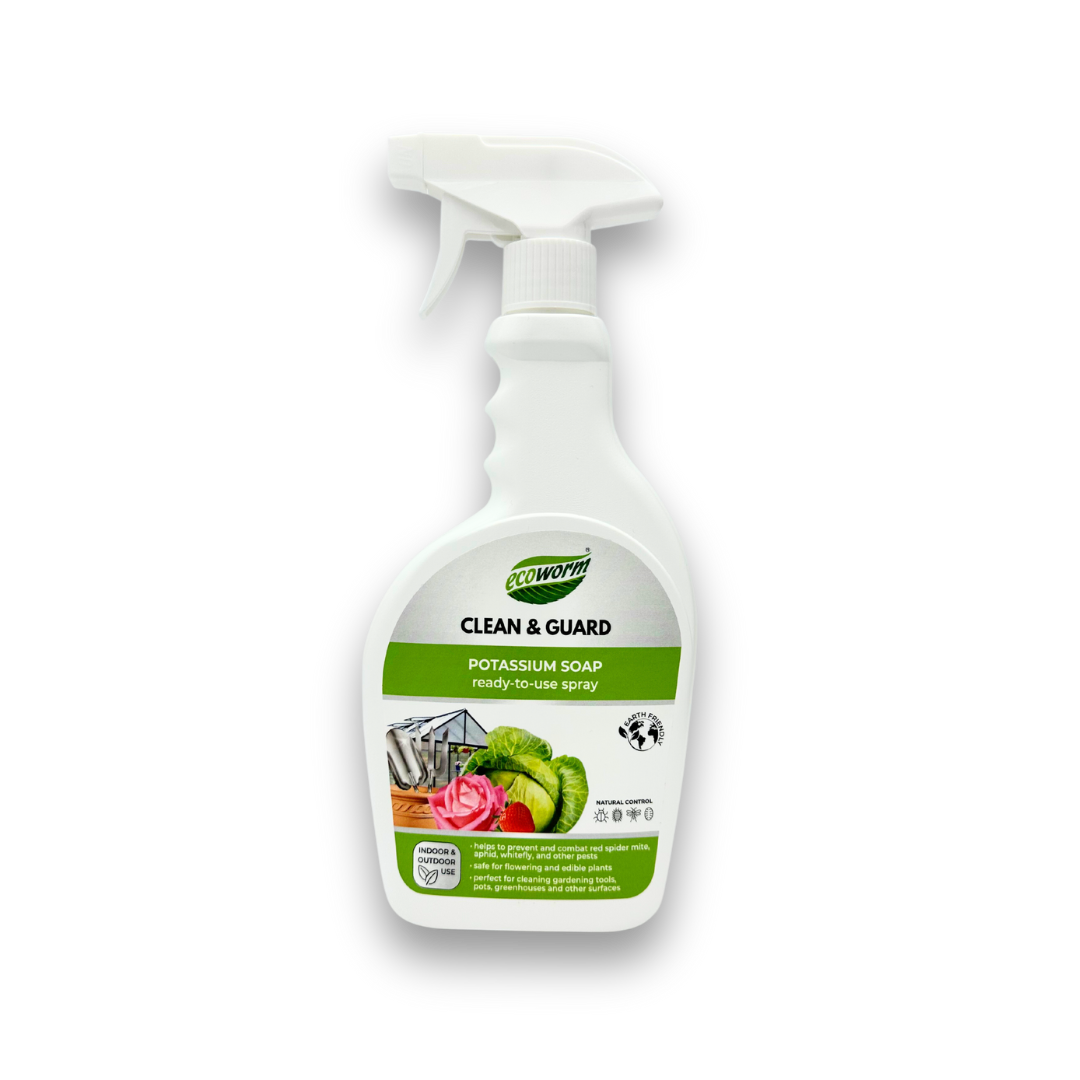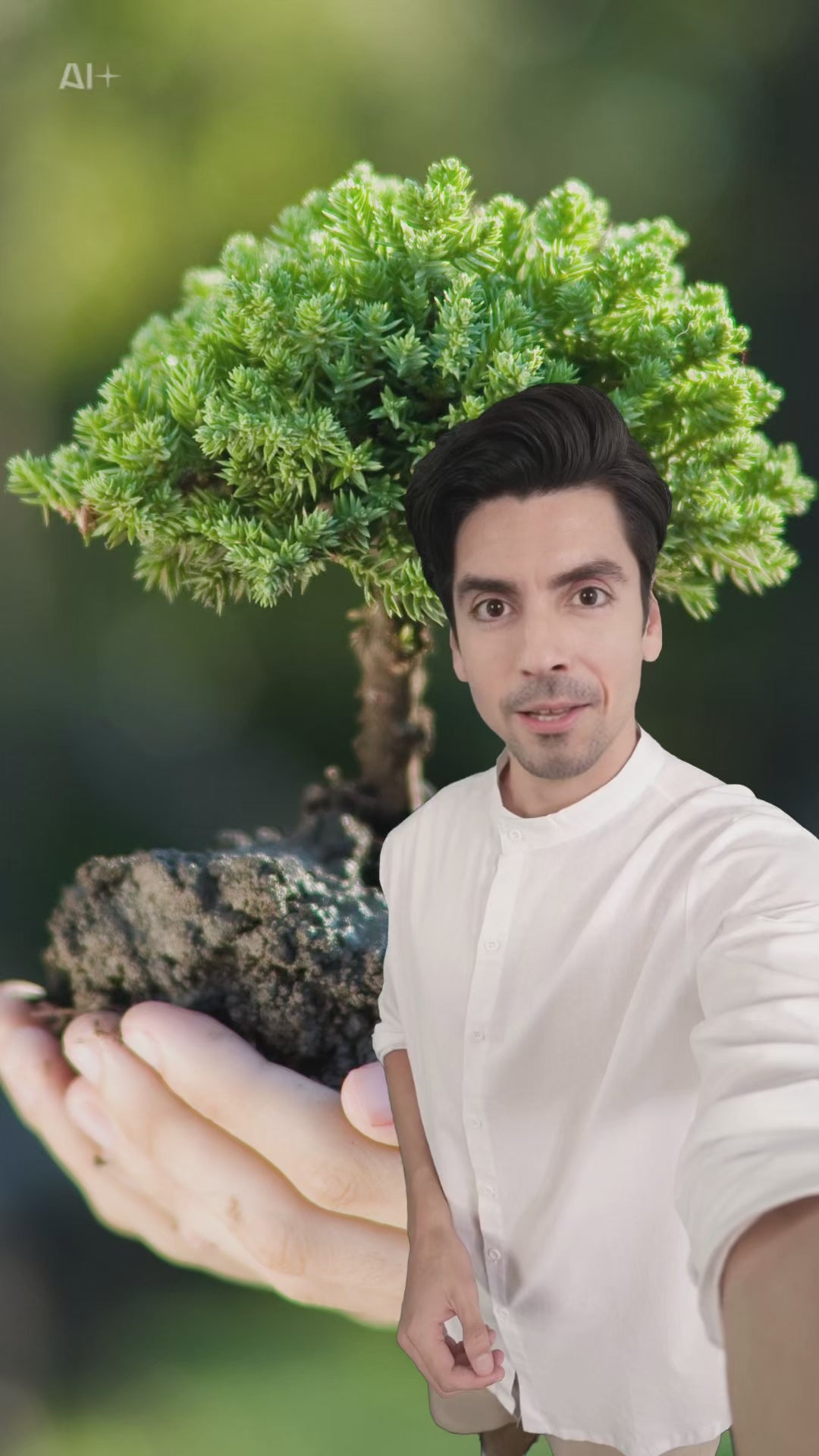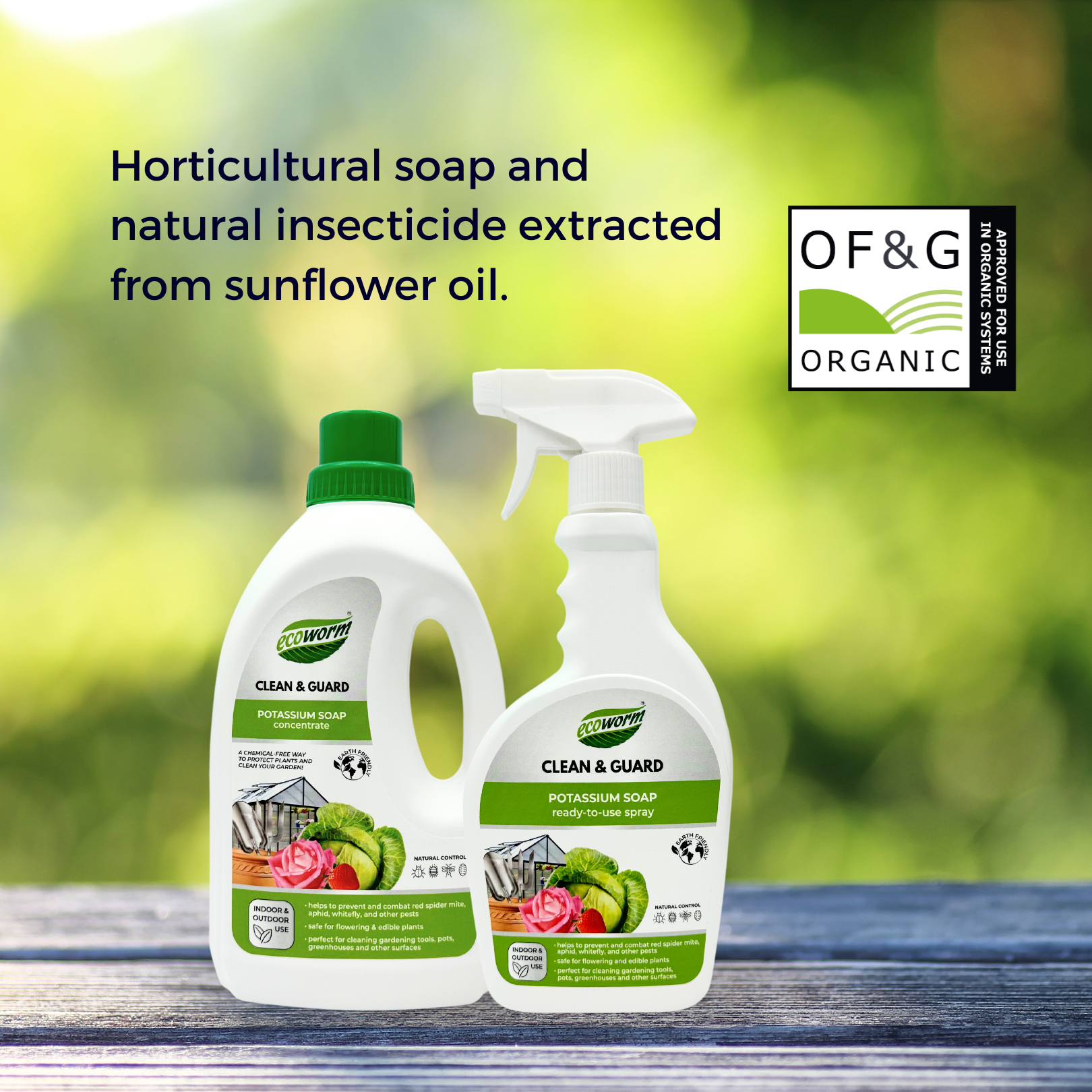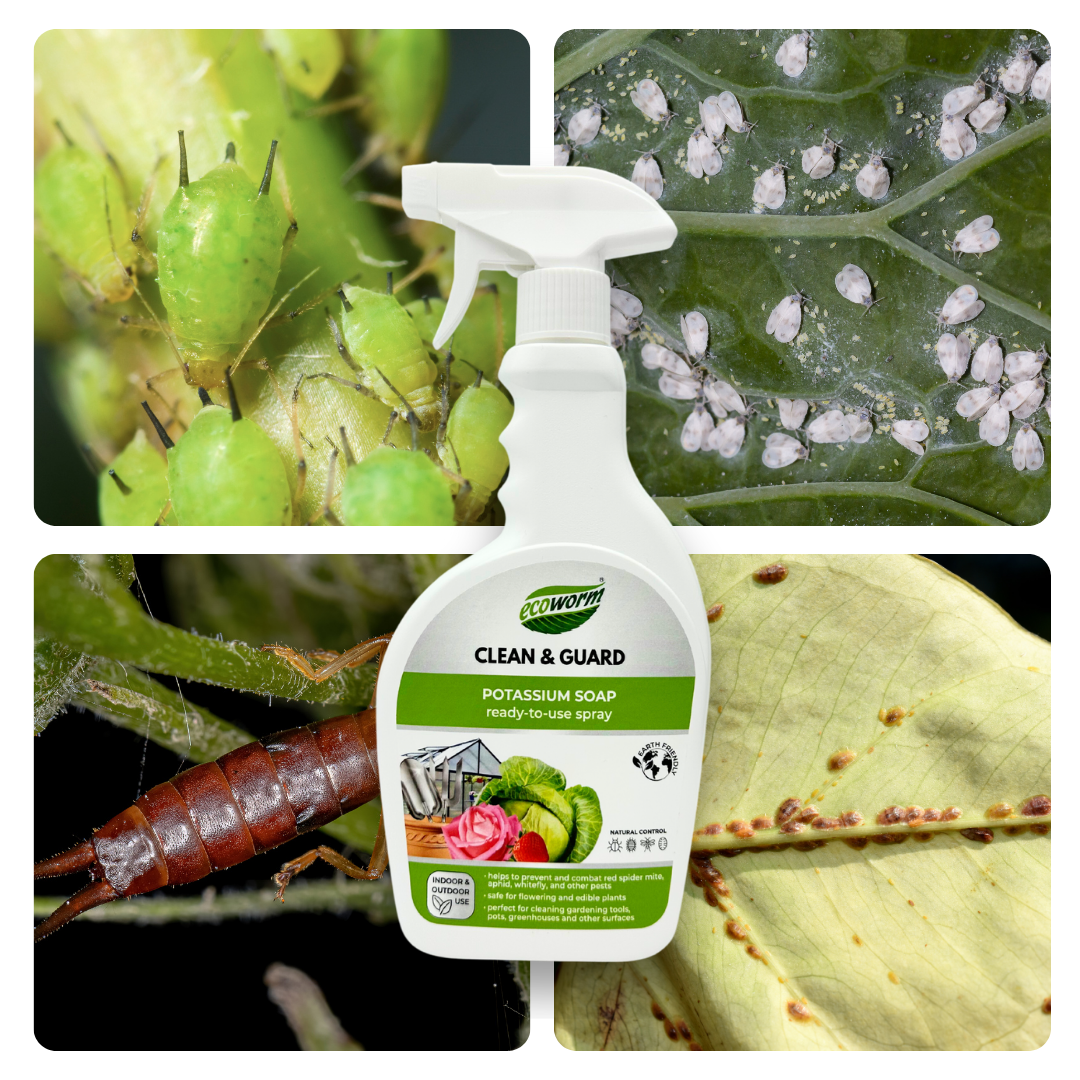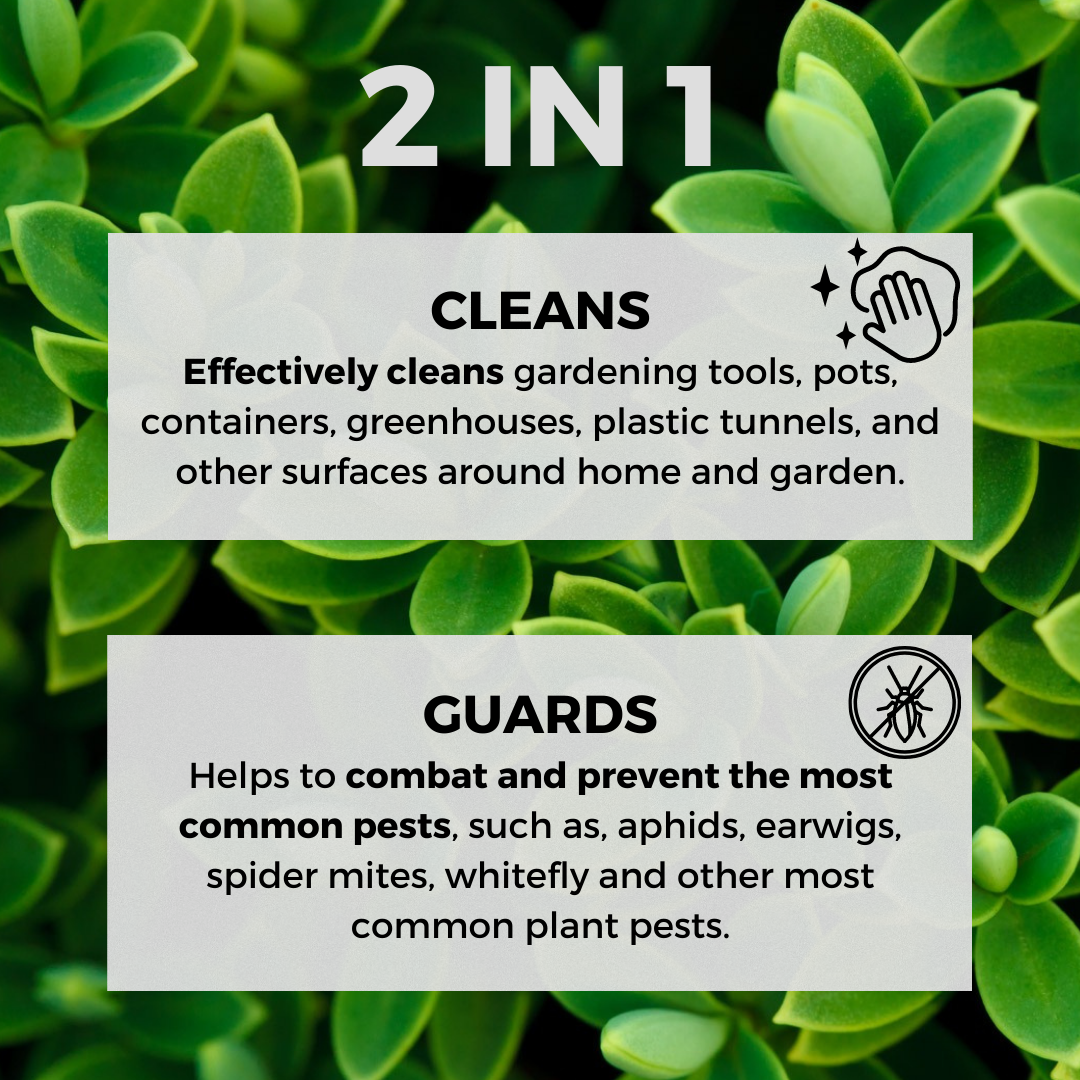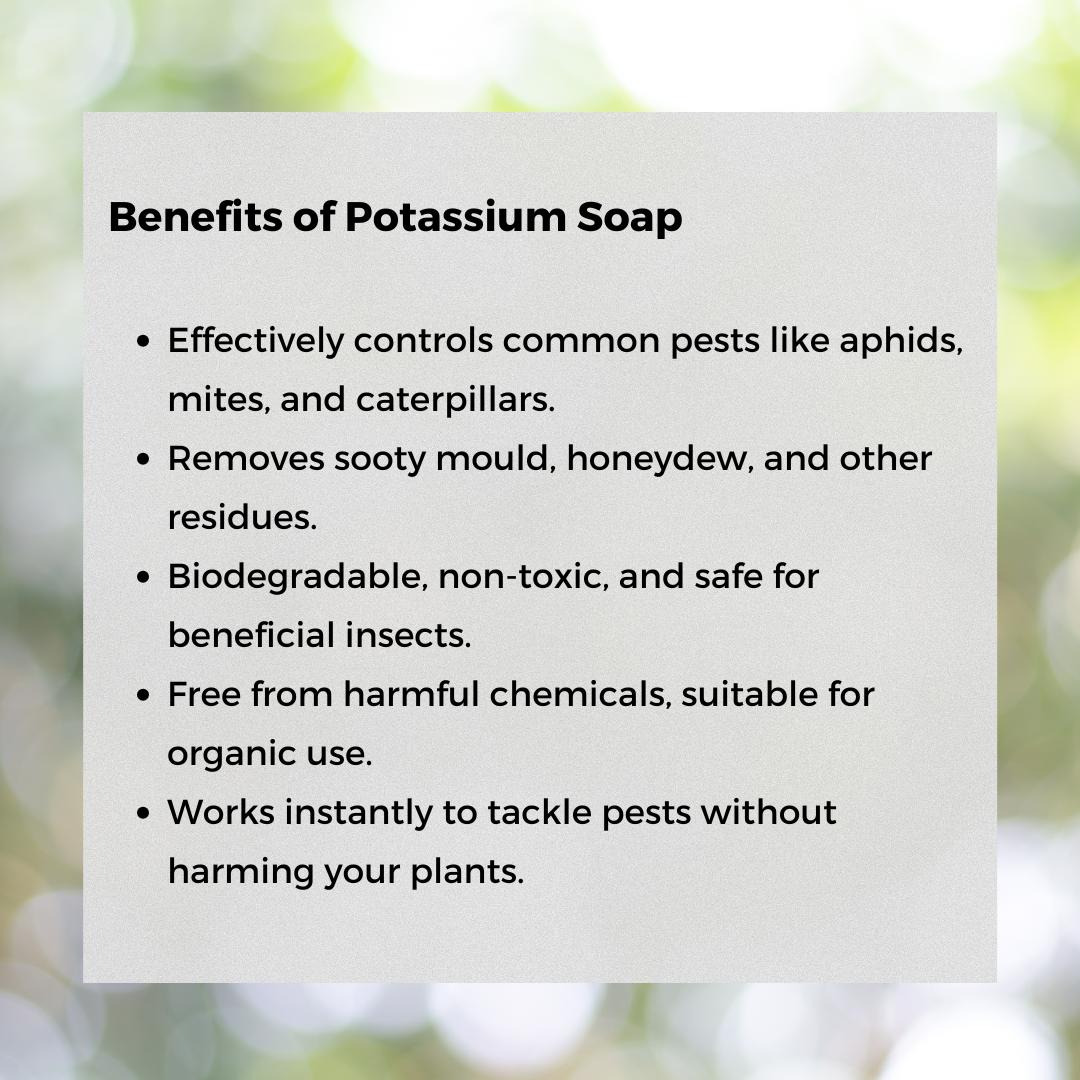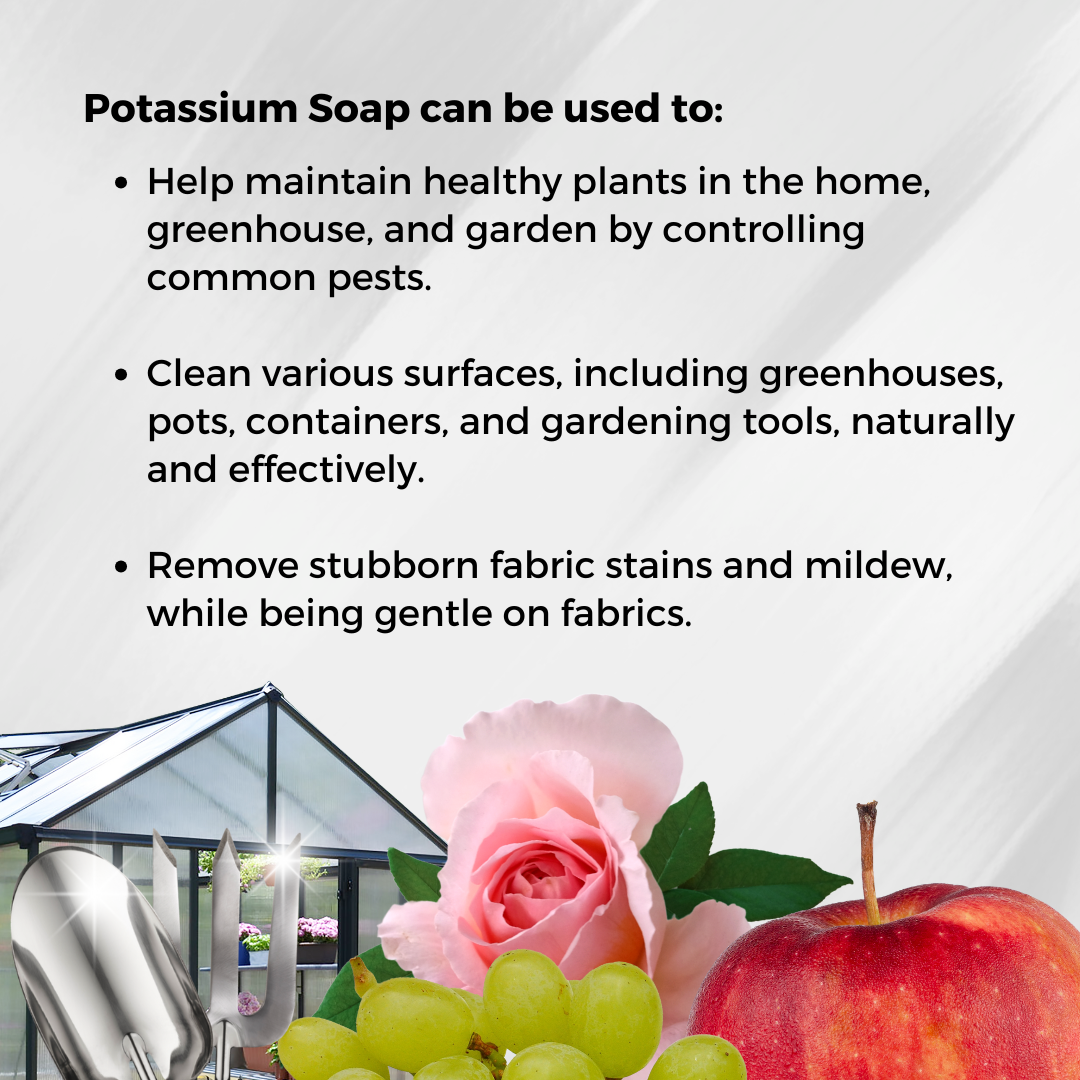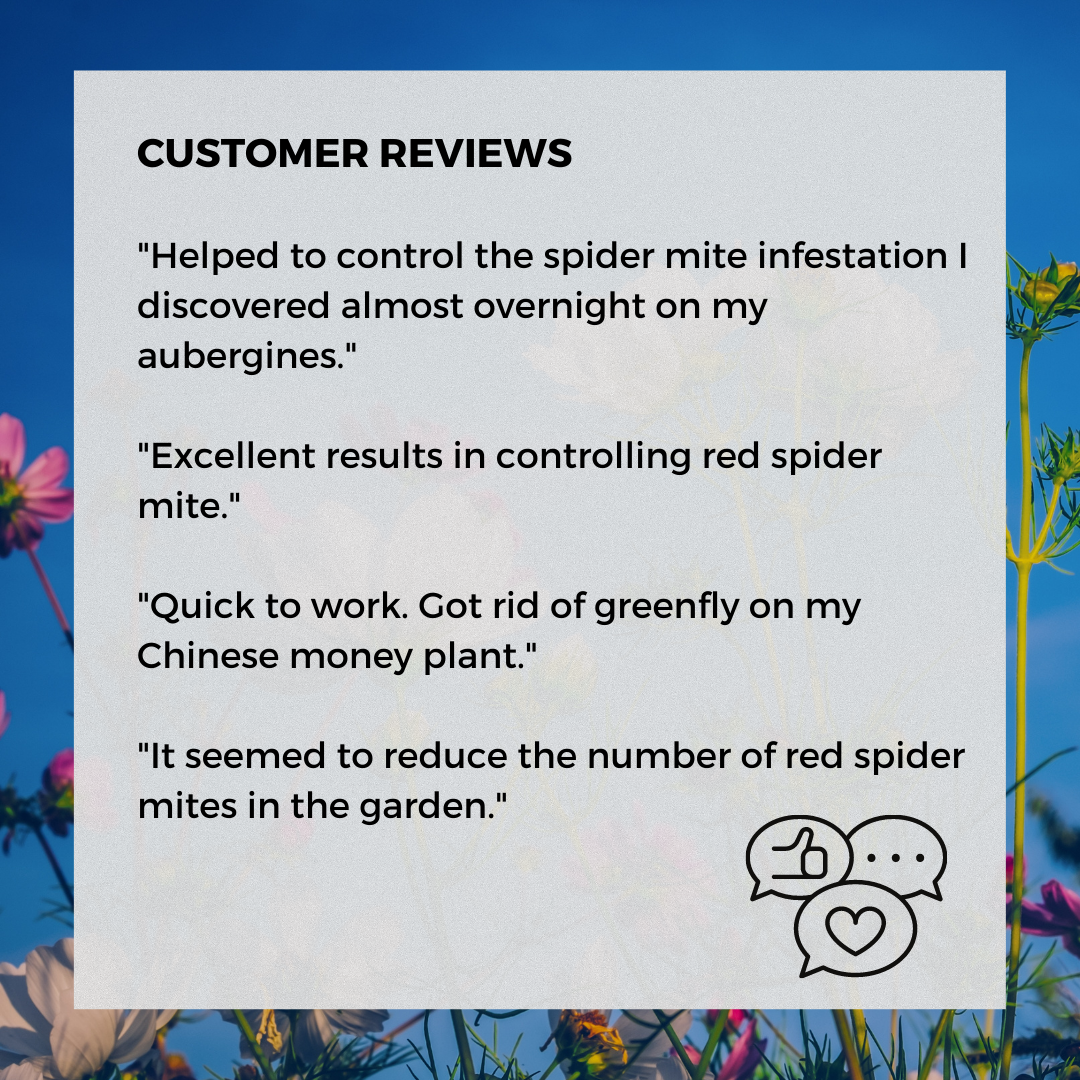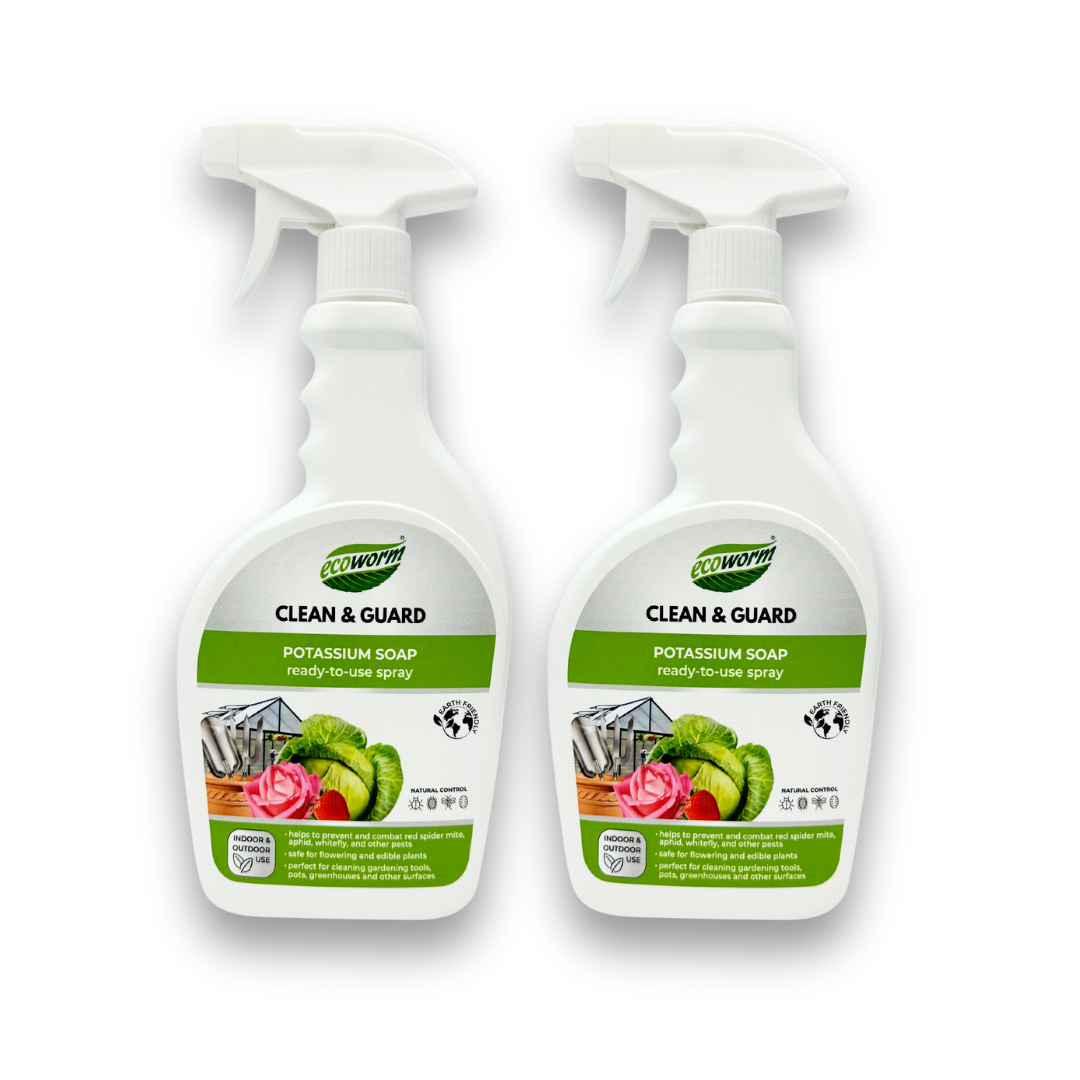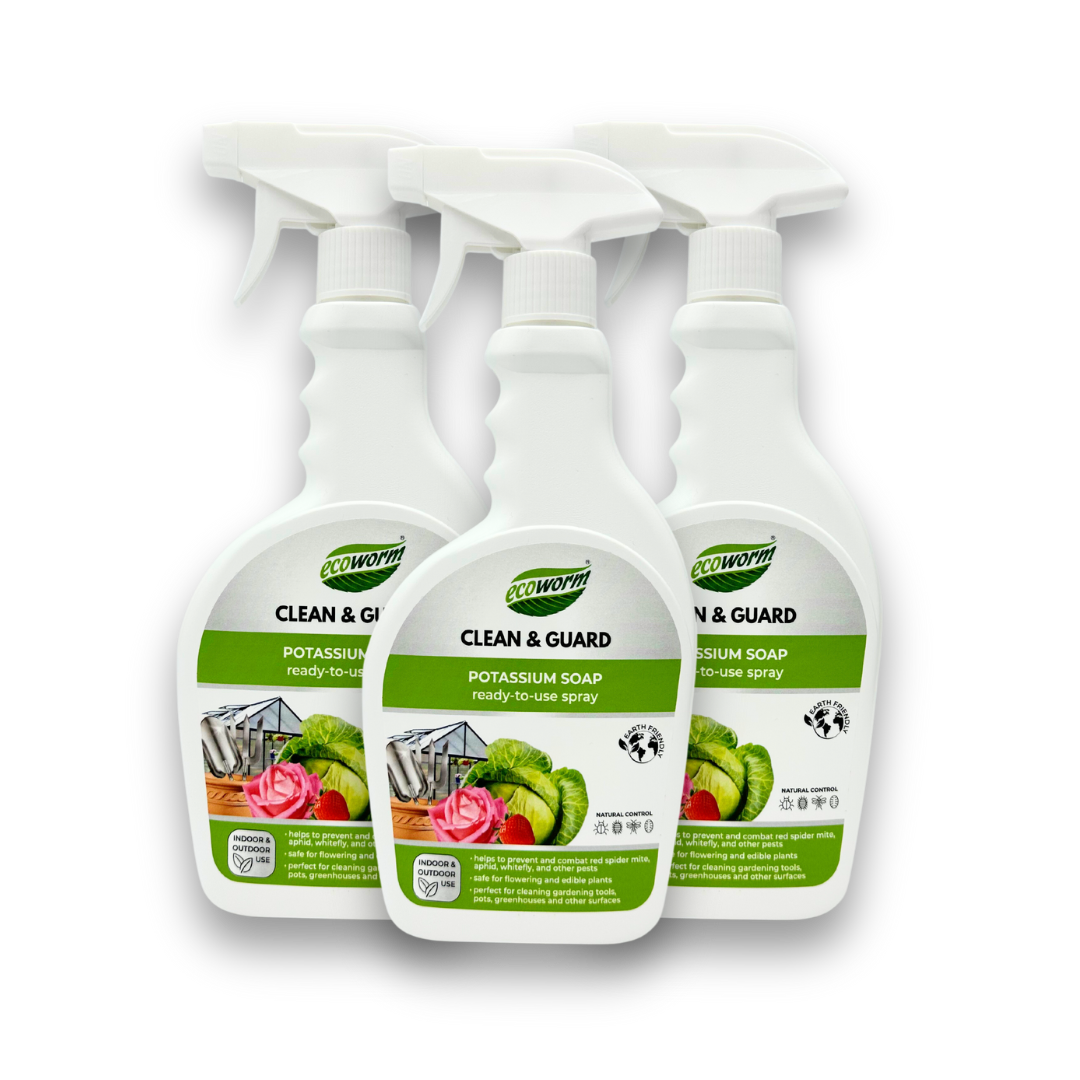Ecoworm
Ecoworm Potassium Soap Ready-to-use Spray 0.5L
Ecoworm Potassium Soap Ready-to-use Spray 0.5L
Couldn't load pickup availability
Looking for an eco-friendly solution to protect your plants? Potassium Soap is a biodegradable, plant-based insecticide made from sunflower oil. It combats common pests like aphids, spider mites, and caterpillars without harming your plants or the environment.
Why You'll Love Potassium Soap:
-
Powerful Pest Control: Targets common pests such as aphids, earwigs, red spider mites, and more, causing them to dehydrate and die.
-
Eco-Friendly & Safe for Plants: Made from natural ingredients, safe for your garden and approved for organic use.
-
Dual Purpose: Use it to clean your gardening tools, pots, greenhouses, and even remove stubborn stains and mildew from fabrics.
-
Beneficial Insects Protected: Safe for ladybugs and other helpful bugs when applied as directed (do not spray directly on beneficial insects when they are present).
-
Supports Plant Health: Provides potassium to plants, helping them grow strong and healthy.
Key Benefits:
-
Controls and prevents pests in homes, gardens, and greenhouses.
-
Cleans gardening tools and surfaces naturally.
-
Can be used as a natural soap to clean up plants that have suffered a pest attack, such as to remove sooty mold and mildew.
-
Safe, non-toxic, and biodegradable.
-
Approved for organic gardening.
-
Helps plants thrive with a secondary source of potassium.
Dosage & Application
Dosage & Application
Plant Spraying:
As a preventive tool, apply every fortnight, especially leading up to when pests are typically seen. If pests are present, apply 3-4 times, 1 day apart, or more frequently if needed. Repeat the treatment 8-10 days later if necessary. Allow a 5-day withdrawal period before harvesting. Spray from a distance of 30 cm, ensuring both sides of the leaves and stems are thoroughly wet. Avoid spraying on forming flowers during bloom. Apply in the morning, evening, or on a cloudy day.
Do not spray in direct sunlight or on a rainy/windy day. Do not spray directly on fruit, vegetables, or berries. Wash crops before use.
Surface Cleaning:
Pour the solution onto the surface, leave for 1-3 minutes, and clean with a brush or cloth. Rinse the surface with water.
FAQ
FAQ
Can it be used on all plants?
While Potassium Soap is safe for most plants, some sensitive plants may be damaged in extreme conditions, such as temperatures above 32ºC or if the plant is severely dehydrated. Always apply when plants are well-watered, and consider testing on a small leaf first to check for adverse reactions. Apply a small amount to one leaf and wait 24-48 hours to observe any signs of damage such as browning or spotting.
How is it produced?
Potassium Soap is made from potassium salts of fatty acids, derived from sunflower oil. The process creates a natural soap that is free from toxic substances, making it an excellent household insecticide, surface cleaner, and fabric stain remover.
Does Potassium Soap harm beneficial insects like ladybirds?
Potassium Soap is generally safe for beneficial insects like ladybirds when applied correctly. It works by targeting soft-bodied pests, and ladybirds, with their hard exoskeletons, are not affected by the soap. However, direct contact with the soap can harm them. To minimise risk, it is recommended to apply Potassium Soap during times when beneficial insects are less active, such as early morning or late evening, and to avoid spraying directly on them. Always apply the soap directly to the pests for the most effective results.
Can Potassium Soap be used to control pests indoors?
Yes, Potassium Soap can be used indoors to combat common pests like aphids, spider mites, and whiteflies on houseplants. Just ensure proper ventilation when spraying and avoid applying the soap directly to fruits, vegetables, or edible plants unless you're ready to wash them before consumption. Always follow the recommended application instructions to avoid overuse indoors.
How often should Potassium Soap be applied?
For preventive purposes, apply Potassium Soap every two weeks. If pests are present, you can apply it 3-4 times, 1 day apart, until the pest numbers start to reduce. After that, reapply as needed, typically every 8-10 days, until pests are no longer a problem. Always follow the dilution instructions and adjust based on the severity of the pest issue.
Does Potassium Soap harm the soil or plant roots?
No, Potassium Soap is safe for the soil and plant roots when used as directed. It works on the pests present on the plant's surface, and its ingredients break down quickly in the environment. The soap will not accumulate in the soil or harm beneficial microorganisms when applied correctly.
Can Potassium Soap be used during the flowering stage of plants?
It’s best to avoid spraying Potassium Soap directly on flowers or buds during their blooming period, as it can potentially cause damage. It’s safe to use during the vegetative stage or on plants that are not actively flowering. Always apply it to the leaves and stems, and avoid spraying during the flowering phase.
Can I use Potassium Soap on vegetables and fruit?
Yes, Potassium Soap can be used on vegetables and fruit, but avoid spraying directly on the produce. Always wash the fruits and vegetables thoroughly after treatment to remove any residual soap. Do not apply to produce that is about to be harvested or during the flowering phase.
How long does Potassium Soap remain effective?
Once applied, Potassium Soap starts to work immediately, but its effects are short-lived. It’s a contact insecticide, so it only affects pests that come in direct contact with it. Reapply after 8-10 days if needed to prevent new infestations, and be mindful of environmental factors like rain or watering, which can wash away the soap.
Can Potassium Soap be used to control fungal issues like powdery mildew?
Yes, Potassium Soap can help control fungal diseases such as powdery mildew, as it removes mould and mildew from plants. It's effective at cleaning affected plant surfaces, preventing further spread. However, for established fungal issues, a dedicated fungicide may be needed.
Storage
Storage
Store out of direct sunlight, in a well-ventilated, clean place at +5ºC to +30ºC.
Composition
Composition
<5% soap (potassium salts of fatty acids of vegetable oil), preservatives (Benzisothiazolinone, Methylisothiazolinone, Laurylamine Dipropylenediamine).
